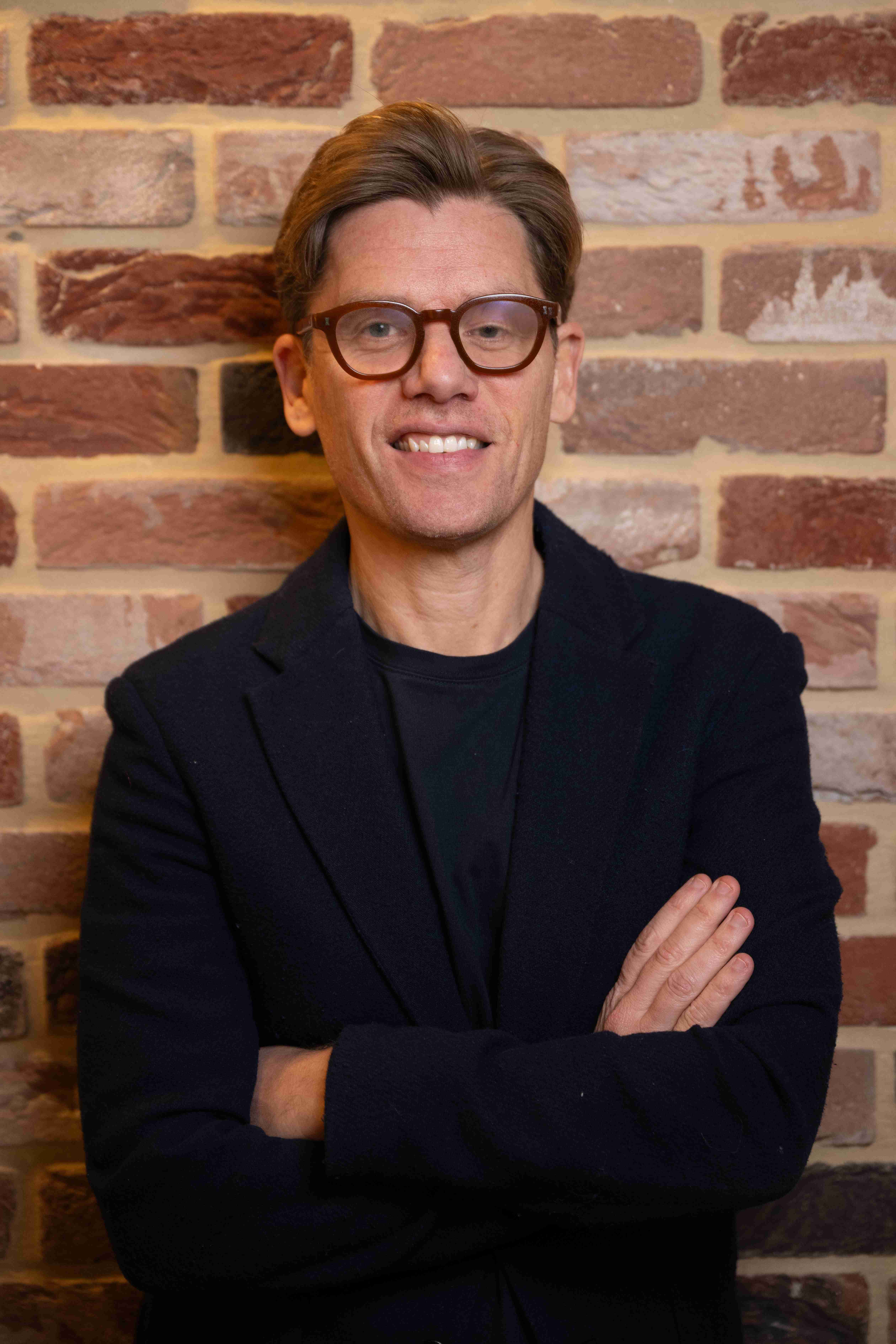↓
All ARTICLES
May 23, 2024

Rupert Pick
Co-Founder

The Hot Pickle Journal
Originally written for Catalyst by, Hot Pickle Founder Rupert Pick and Beatrice Bourdel-Grant (former Director Strategic Marketing Communications, Bayer), March, 2022
Winning a Grand Prix at the Cannes Lions Festival is a rare and exceptional feat. It is the creative industry’s World Cup, Olympics, Oscars and London Fashion Week all rolled into one. The one week in the year when the good, great and the up-and-coming gather to acknowledge the masters of their community and debate the future of their industry.
Past winners, drawn from the four corners of the planet, have represented almost every industry and product category imaginable. From laundry detergent to insurance to train safety, where there’s a good story to tell, an eclectic team of thinkers, dreamers, creators and makers have successfully thrown themselves at the challenge of making work that their audiences will truly care about.
These award-winning storytellers are magicians; they’ve persuaded their audiences to weep for a homeless red lamp, believe in a 400-pound drumming gorilla and feel a deep sense of pride for a principled cartoon farmer and his drove of pigs. Their craft has drawn tears, excitement and even laughter for brands and products we didn’t know we cared so much about. This is the true power of creativity.
Strangely the list of winners (in film) from the last 20 years includes just a single representative of the consumer healthcare sector. An industry that tackles needs and problems that people, indisputably think and care about, because at the root of all happiness is good health.
The category includes products that tackle material conditions such as paid, allergies and digestion. These readily available products, supplements and aids occupy and emotionally sensitive space in our lives and can significantly impact how we feel from one day to the next. Given the significance of these products in our lives and to our health, it is a little surprising that this sector has creatively fallen behind so many other industries and failed, in the main, to make the kind of groundbreaking work we see in other fields.
The Fun Police
Some blame the regulatory landscape. It is true the consumer healthcare industry is policed more closely than others and there’s good reason for this; consumers need to be guided appropriately, in relation to how products are used and their claims. After all, we’re not selling confectionery.
But limitations and rules, as TS Eliot remarked, can be liberating. “When forced to work within a strict framework the imagination is taxed to its utmost – and will produce its richest ideas. Given total freedom, the work is likely to sprawl.” Or as David Ogilvy once said, “Give me the freedom of a tight brief.”. Patricia Corsi, Bayer Consumer Health’s chief marketing, digital and information technology officers, remarked at Cannes Lions in 2022: “There are no more excuses. Saying regulations don’t allow us to [be creative] is an old excuse. We need to move past that.”
Others point to culture, citing that healthcare organisations are inherently conservative’ left-brained in their approach and more inclined to favour short-term sales-oriented tactics over long-term brand-building initiatives. Again, there’s some truth in this.
Marketing has, in the case of many of the leading players, played second fiddle to science and sales. Why? Because science drove the success of these businesses and remains the cornerstone of these operations. They are precise and ordered. For the rational mind, there’s comfort in talking about known features and benefits. But when the solution becomes repetitive, as it so often has in the case of consumer healthcare, it ceases to cut through. “Repeatable methods produce predictable results. This is valuable in manufacturing but not in pursuing creativity.” States Martin Weigel.
Peter Field, a man for whom creative effectiveness has become a crusade, cautions against the addictive pull of short-term sales-driven communication tactics at the expense of long-term brand health and profitability. In his recent book, Lemon, Orlando Wood draws on neuroscience and art history to explain the creative evolution of advertising and current bias for a left-brained approach; resulting in work that is flatter and more abstracted, less humane and dislocated from time and place.
Broadly speaking, the work that results in less emotional, less poetic, light on the metaphorical storytelling and characterisation associated with the heyday of advertising. While Wood’s analysis is directed at the entirety of the advertising industry, it is fair to say that much of the work from our own industry fits this pattern, and we are perhaps even more guilty of producing formulaic and overly rational work than other sectors.
Get intimate with healthcare
With the help of our media tracking partner, MetrixLab, we ran a cross-category analysis of TV and video communication, and the data confirmed our suspicions. Consumers find healthcare ads less interesting than FMCG ones – at only 52% rating, compared to 77%. This finding mirrors the message of MBLM’s Brand Intimacy report (the largest study of brands based on emotion), that health and hygiene is a bottom-ranking category for brand intimacy. In simple terms, consumer healthcare brands don’t connect with consumers at the same emotional level as other brand categories.
Having worked through the pandemic, we’re now facing loud calls for change. Covid made us all realise how much our health matters and how our own actions and behaviours can determine the path of our wellbeing. It has also brought into sharp focus the fragility and outdated nature of health systems.
Contrast this with the potential (more) digitisation, in democratising knowledge and access to treatments, along with rising patient expectations levels, and we have an industry at an exciting crossroads. It is this context, that creativity has a huge part to play in driving not only just our business but the industry too. Creativity, as McKinsey pointed out, “is the oxygen of business growth”.
Recognising we had to make changes was our first and most important step. In 2019, we started a programme of creative transformation to equip our people to think, behave and act more creatively. Through our Creative Excellence Training programme we upskilled our teams. We introduced a regular series of talks to open people’s eyes to the wider marketing world. We initiated an industry-first briefing process, Creative Unleashed, that gives our creative partners the opportunity and freedom to pitch big ideas (and win additional budget) outside of their agreed contracted annual plans.
In addition, we’ve assembled an all-star marketing brains trust, our Creative Council, to bring ideas and wisdom from the outside, into the business. In 2022, to coincide with Patricia Corsi’s appointment as jury president of the health and wellness category at Cannes Lion, we returned to the festival with a handpicked team of rising stars of the business. Their brief: to be inspired and educated by the world-class work on offer, and to share their thoughts and thinking with our global marketing community.
Just as the process of creativity is ‘a journey and not an invention’, so is the act of creative transformation. As a business, we are at the start of our creative revolution but encouragingly, we are already seeing the fruits of our labour, with Lions for our work on Supradyn and Aspirin, along with disruptive campaigns for the likes of Redoxon and Rennie – the latter a Halloween campaign encouraging people to fall bac in live with their food. Or what about the Outsideolgist Project, a campaign to get kids away from the screen and encourage them to go outside. These have seen us test new approaches (media, channels and audiences) to reach consumers.
With this change in mind, we’ve grabbed hold of important subjects that in the past we would have shied away from. Our taboo-busting work for Canesten has seen the creation of the Vagina Academy, an ongoing educational programme initiated in Brazil but now available elsewhere, that challenges harmful myths and misconceptions related to vaginal health.
Our pursuit of better creative work is driven by a deep-rooted belief that (better) creativity has an important role in tackling the challenges of healthcare; brands can and should be educating and supporting people to navigate the complexity of health, so they can lead happier and healthier lives.
Additional contributors: Terser Adamu (director of growth and strategy at ETK Group), Andy Crawford (managing consultant at China Skinny), Dilupa Pathirana (chief executive or Barista Coffee Lanka) Katie Hart FCIM (international speaker in the field of neuromarketing) and Nic Kostouros (integrated creative director).
SHARE ARTICLE
MORE
ARTICLES
READ ALL
READ ALL




